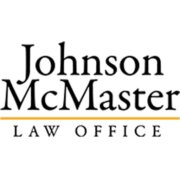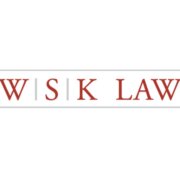Best Funds & Asset Management Lawyers in Cambridge
Share your needs with us, get contacted by law firms.
Free. Takes 2 min.
List of the best lawyers in Cambridge, Canada
About Funds & Asset Management Law in Cambridge, Canada
Funds and asset management legal frameworks govern the creation, operation, and oversight of investment vehicles such as mutual funds, hedge funds, pension plans, and portfolio management services. In Cambridge, Canada, these legal structures help guide investment managers, financial institutions, and investors to ensure fair dealing, transparency, and compliance with federal and provincial regulations. Legal professionals in this field play a critical role in drafting fund documentation, providing regulatory compliance advice, and addressing disputes that can arise in the course of asset management activities.
Why You May Need a Lawyer
Funds and asset management involves complex laws and regulations. You may need a legal specialist if you are:
- Establishing a new investment fund or trust
- Managing high-value or complex investment portfolios
- Facing audits or investigations by securities regulators
- Drafting or reviewing offering documents, management agreements, or disclosure materials
- Dealing with partner or investor disputes relating to funds
- Navigating tax implications for managed funds
- Advising on mergers, acquisitions, or restructuring of funds
- Needing advice on cross-border investments or regulatory requirements
Legal advice ensures that your operations comply with the law and safeguard your interests, whether you are an individual investor, fund manager, or institutional entity.
Local Laws Overview
In Cambridge, Canada, funds and asset management activities are primarily regulated by both federal and Ontario provincial laws. Key regulatory bodies include the Ontario Securities Commission (OSC) and the Canadian Securities Administrators (CSA). Regulations cover securities registration, fund disclosures, anti-money laundering compliance, and fiduciary obligations.
Asset management firms must adhere to rules under the Securities Act (Ontario), which mandates registration of dealers and advisors, ongoing disclosure, and robust compliance systems. The Canada Business Corporations Act and the Income Tax Act may also apply to fund structures, taxation, and reporting obligations. Additionally, rules from the Mutual Fund Dealers Association of Canada (MFDA) or Investment Industry Regulatory Organization of Canada (IIROC) can impact certain asset managers and dealers.
Frequently Asked Questions
What is funds and asset management?
Funds and asset management refers to the professional management of investment portfolios and pooled funds on behalf of clients or investors to achieve specific financial goals while complying with legal and regulatory requirements.
Who regulates funds and asset management in Cambridge, Canada?
The primary regulators are the Ontario Securities Commission (OSC) and national organizations such as the Canadian Securities Administrators (CSA).
Do I need to register to manage other people's investments?
Yes, under the Securities Act (Ontario), fund managers, portfolio managers, and certain advisors must be registered with the OSC or a recognized self-regulatory organization.
Can foreign investments be included in a Cambridge-based fund?
Yes, but cross-border investments are subject to additional Canadian and international regulations and may require specific legal guidance to ensure compliance.
What is a prospectus, and do all funds need one?
A prospectus is a disclosure document provided to investors outlining investment risks, fees, and fund strategy. Not all funds need a prospectus, but public funds typically do, unless an exemption applies.
Are there specific rules for mutual funds?
Yes, mutual funds in Canada must comply with National Instrument 81-102, which outlines requirements for fund structure, operations, sales, and investor protection.
How are investor disputes resolved?
Disputes are usually resolved through negotiation, mediation, arbitration, or litigation, depending on the agreements in place and the nature of the issue.
What are the tax implications of fund investments?
Tax treatment depends on the fund structure and investor type. Legal advice is necessary to understand capital gains, distributions, and withholding tax obligations.
How often must funds report to investors?
Funds must provide regular financial statements, typically at least annually and semi-annually, along with other material disclosures as required by law.
What happens during a regulatory investigation?
Regulators review fund documents, practices, and compliance systems. Legal counsel can represent your interests, respond to inquiries, and guide you through the process.
Additional Resources
If you need more information or support, the following resources can be helpful:
- Ontario Securities Commission (OSC)
- Canadian Securities Administrators (CSA)
- Mutual Fund Dealers Association of Canada (MFDA)
- Investment Industry Regulatory Organization of Canada (IIROC)
- Financial Services Regulatory Authority of Ontario (FSRA)
- Canada Revenue Agency (CRA) for tax matters
- Government of Canada - Financial Consumer Agency of Canada (FCAC)
- Law Society of Ontario - for finding a qualified funds and asset management lawyer
Next Steps
If you need legal assistance with funds and asset management in Cambridge, Canada, start by gathering all relevant documents about your fund or portfolio. Consider the specific legal questions or challenges you face. Reach out to a lawyer with experience in funds and asset management law who is familiar with Ontario and national regulations. Many legal professionals offer initial consultations to discuss your situation and outline a plan. You may also want to check the Law Society of Ontario’s directory to find qualified local lawyers. Taking early and informed action helps ensure your investments and operations comply with all legal requirements and remain protected.
Lawzana helps you find the best lawyers and law firms in Cambridge through a curated and pre-screened list of qualified legal professionals. Our platform offers rankings and detailed profiles of attorneys and law firms, allowing you to compare based on practice areas, including Funds & Asset Management, experience, and client feedback.
Each profile includes a description of the firm's areas of practice, client reviews, team members and partners, year of establishment, spoken languages, office locations, contact information, social media presence, and any published articles or resources. Most firms on our platform speak English and are experienced in both local and international legal matters.
Get a quote from top-rated law firms in Cambridge, Canada — quickly, securely, and without unnecessary hassle.
Disclaimer:
The information provided on this page is for general informational purposes only and does not constitute legal advice. While we strive to ensure the accuracy and relevance of the content, legal information may change over time, and interpretations of the law can vary. You should always consult with a qualified legal professional for advice specific to your situation.
We disclaim all liability for actions taken or not taken based on the content of this page. If you believe any information is incorrect or outdated, please contact us, and we will review and update it where appropriate.










